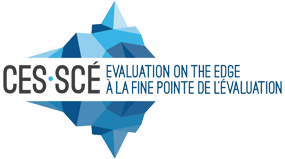Summary
Two new methods developed for Rapid Impact Evaluation are valuable compliments to mixed method evaluations enabling evaluation of impacts in ex ante and ex post settings.
The scenario-based counterfactual is a method to compare the intervention to a plausible and feasible alternative. Using scenario-based counterfactuals enables evaluators to generate good quality estimates of impacts attributable to the intervention without requiring extensive surveys or data. As a result this method enables evaluators to assess impacts in developmental and formative evaluations as well as the more usual end-of-cycle settings for impact evaluation.
This interactive workshop will also introduce and build capacity to apply a simplified metric developed for RIE to generate scalar measurement of impacts. In addition to introducing and building capacity to use these methods this workshop will demonstrate how use-inspired approaches can be infused into the DNA of an evaluation.
You will learn:
- why these new methods were required for Rapid Impact Evaluation and how they are applied within RIE.
- the conceptual base and how to develop and use scenario-based counterfactuals and a new metric for forecasting and scaling impacts.
- how to systematically build use-inspired approaches into all elements of an evaluation
Facilitator
Andy Rowe, arcEconomics, led development and use of Rapid Impact Evaluation for eleven evaluations and is leading or providing technical assistance for the current use of RIE in Canada, the U.S., Fiji and globally. In addition to developing Rapid Impact Evaluation he is a leading contributor to methods for evaluating sustainable development and introducing sustainability into evaluation thinking and practice. Andy has over thirty years evaluation experience in North America and globally, is a CES Fellow.
Language
English
Level
Advanced
Prerequisites
Solid prior experience with design and implementation of evaluations.
Schedule
Sunday, June 5 from 1:00 pm to 4:00 pm
Link to CE competencies for evaluators
- Aware of self as an evaluator (knowledge, skills, dispositions)
- Reflects on personal evaluation practice (competencies and areas for growth)
- Develops reliable and valid measures/tools
- Identifies the interests of all stakeholders
- Attends to issues of evaluation use
- Uses collaboration/partnering skills






